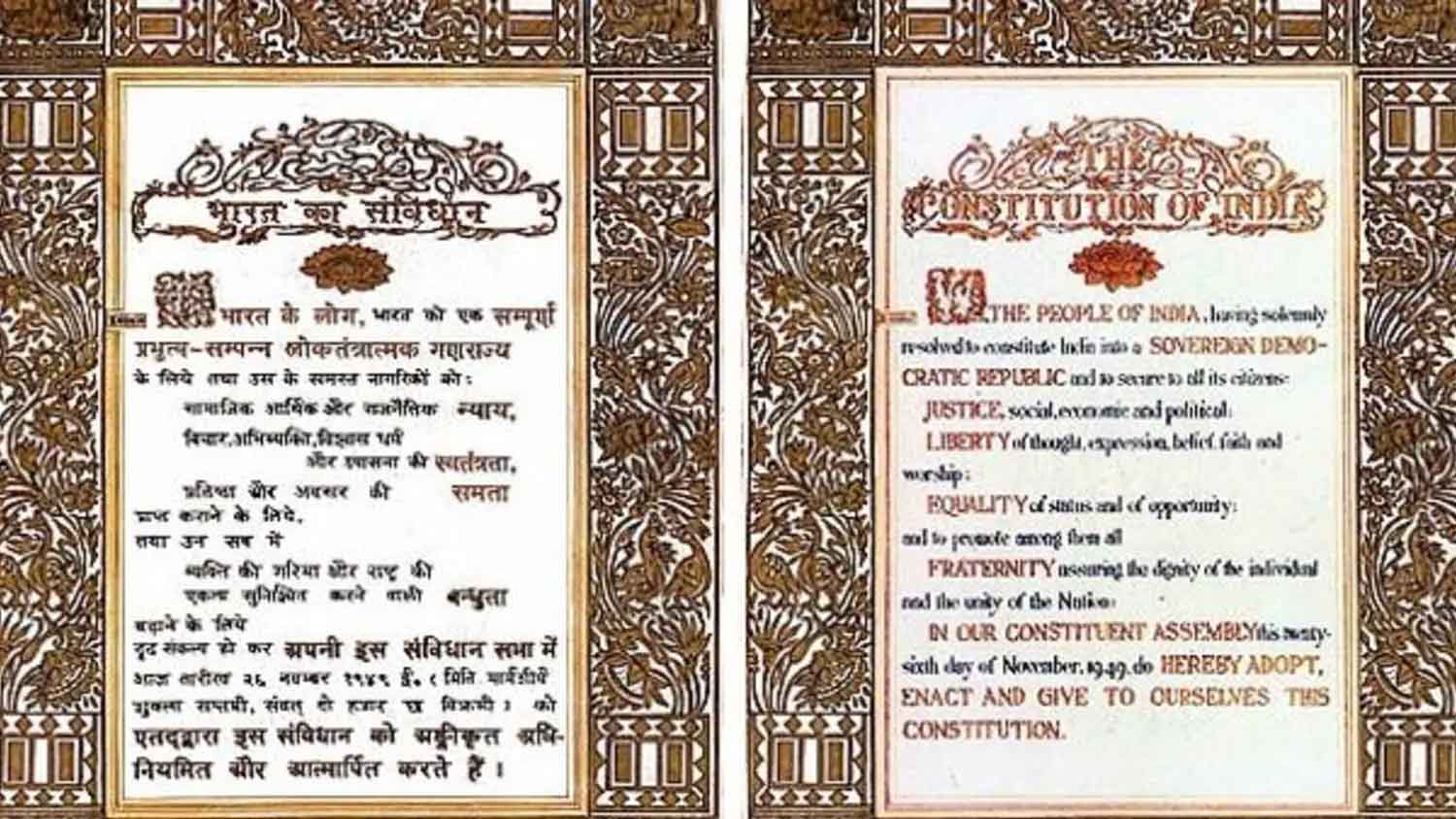The Preamble of the Constitution of India is a profound and eloquent statement that sets the tone and objectives of the entire constitution. It encapsulates the aspirations, values, and vision of the framers of the Indian Constitution. Often referred to as the “soul” of the constitution, the Preamble holds immense significance in the Indian legal and political landscape. In this comprehensive article, we will delve into the history, significance, and interpretation of the Preamble of the Constitution of India.
Historical Background
Before we explore the Preamble itself, it is crucial to understand the historical context in which it was crafted. India gained independence from British colonial rule on August 15, 1947, and was initially governed by the Government of India Act, 1935. The Constituent Assembly of India, convened on December 9, 1946, was tasked with the responsibility of drafting a new constitution for the nation.
The Preamble drafting committee, chaired by Dr. B.R. Ambedkar, played a pivotal role in crafting this introductory statement. Over several deliberations, the committee members meticulously framed the Preamble to reflect the principles and ideals that would guide the newly independent nation.
The Preamble of the Constitution of India
The Preamble of the Indian Constitution reads as follows:
“We, the people of India, having solemnly resolved to constitute India into a Sovereign, Socialist, Secular, and Democratic Republic and to secure to all its citizens:
- Justice, social, economic, and political;
- Liberty of thought, expression, belief, faith, and worship;
- Equality of status and opportunity;
- And to promote among them all Fraternity assuring the dignity of the individual and the unity and integrity of the Nation.”
Let’s break down the Preamble into its key components:
- “We, the people of India”: This phrase establishes that the Constitution derives its authority from the people of India, emphasizing the democratic nature of the nation.
- “Sovereign, Socialist, Secular, and Democratic Republic”: These four adjectives describe the fundamental features of the Indian state:
- Sovereign: India is not subject to external control or interference and is free to make its own decisions.
- Socialist: The term signifies the commitment to social and economic justice and the welfare of the people.
- Secular: India is a secular state that treats all religions impartially and does not promote or discriminate against any particular faith.
- Democratic Republic: India’s government is elected by the people, and citizens have the right to participate in the decision-making process.
- “Justice, social, economic, and political”: The Preamble pledges to secure justice in various dimensions, ensuring fairness in all aspects of life.
- “Liberty of thought, expression, belief, faith, and worship”: This phrase emphasizes individual freedoms, including freedom of speech, religion, and belief.
- “Equality of status and opportunity”: The Preamble commits to providing equal opportunities and eliminating discrimination based on caste, creed, gender, or other factors.
- “Fraternity assuring the dignity of the individual and the unity and integrity of the Nation”: This part underscores the importance of brotherhood among citizens and the nation’s unity and integrity.
Significance and Interpretation
The Preamble serves several crucial purposes in the Indian constitutional framework:
- Guiding Principles: It serves as a guiding light for interpreting the Constitution’s provisions and ensuring that the government’s actions align with the stated goals of justice, liberty, equality, and fraternity.
- Reflecting Aspirations: The Preamble reflects the collective aspirations of the Indian people, emphasizing their commitment to building a just and inclusive society.
- Amendment Limitations: The Supreme Court of India has held that while the Preamble is not enforceable in a court of law, it can be used as a tool for interpreting the Constitution. The Preamble of the Indian Constitution can be amended but its basic structure cannot be altered.
- Identity and Values: The Preamble defines India’s identity as a democratic, secular, and socialist republic, highlighting the values that underpin the nation.
- International Influence: The Preamble of the Indian Constitution draws inspiration from various sources, including the Constitution of the United States and the ideals of the French Revolution.
Conclusion
The Preamble of the Constitution of India stands as a testament to the visionary leaders who framed it and the hopes and dreams of a nation. It sets the foundation for India’s democratic, secular, and inclusive ethos, emphasizing justice, liberty, equality, and fraternity as its core values. While not legally enforceable on its own, the Preamble plays a vital role in interpreting and upholding the principles enshrined in the Indian Constitution. It continues to inspire generations of Indians in their pursuit of a just and equitable society, making it a timeless and invaluable part of the nation’s constitutional legacy.

